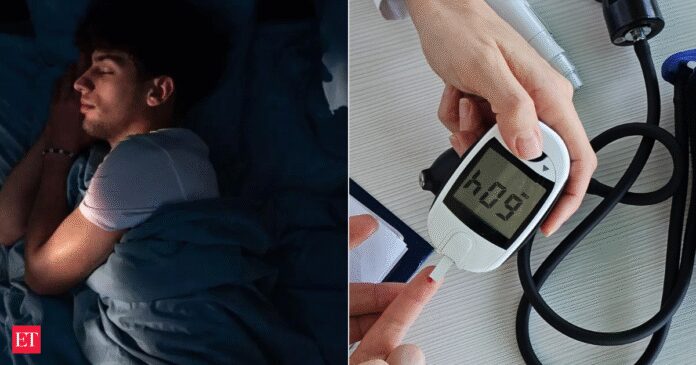Doctors say paying attention to early signals can make a big difference. Your body often gives subtle clues when blood sugar starts to rise beyond healthy levels. Ignoring them can lead to long-term health problems, including diabetes, heart issues, and chronic fatigue. Understanding these early signs can help you act in time, make small changes, and protect your overall health before things get worse.
Here are five important signs to watch for.
1. Trouble sleeping
If you frequently wake up in the middle of the night, particularly around 3 a.m., it could be linked to high blood sugar. Elevated sugar levels can overstimulate the nervous system, making it hard for your body to relax and get restorative sleep. Poor sleep over time can further disrupt your blood sugar balance.
2. Constant thirst and frequent urination
Feeling unusually thirsty and needing to urinate more than usual may indicate that your body is trying to remove excess sugar. The kidneys work harder to flush out sugar, which can leave you dehydrated and running to the bathroom often.
3. Strong cravings for sweets and carbs
High blood sugar can interfere with how insulin works in the body. When insulin is less effective, your body signals that it needs more fuel, often in the form of sugar or carbohydrate-rich foods. This can result in constant cravings for sweets, pastries, or other high-carb snacks.4. Unexplained skin itching
Sugar can harm small blood vessels, affecting skin health. This damage can lead to persistent itching, rashes, or other skin irritation. If you notice unexplained itching or skin changes, it may be linked to elevated sugar levels.
5. Body pain and nerve issues
Excess sugar can affect nerves throughout the body, causing chronic aches, tingling, or pain. Over time, this nerve damage can become serious, making even daily activities uncomfortable.
What you can do:
Watching your sugar intake, maintaining a balanced diet, and staying physically active are key steps to prevent sugar-related health issues. If you experience any of these symptoms, it’s important to consult a healthcare professional for proper evaluation and guidance.

